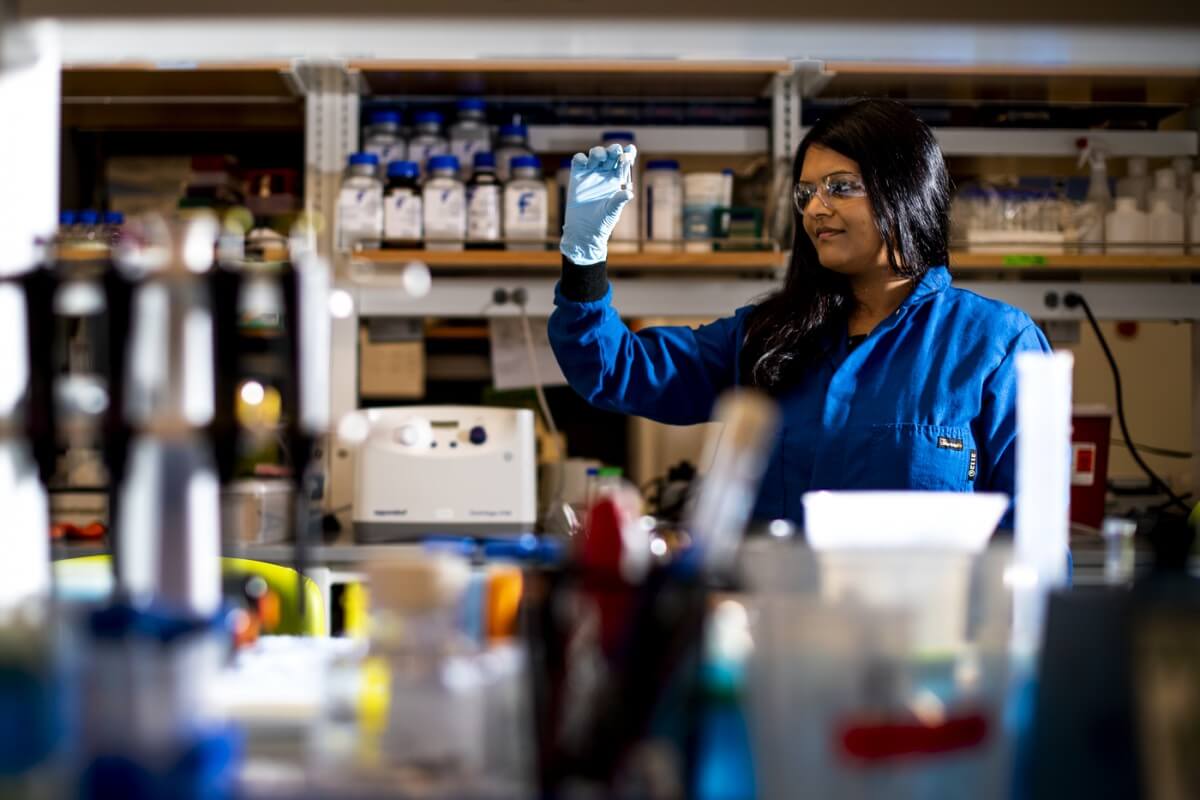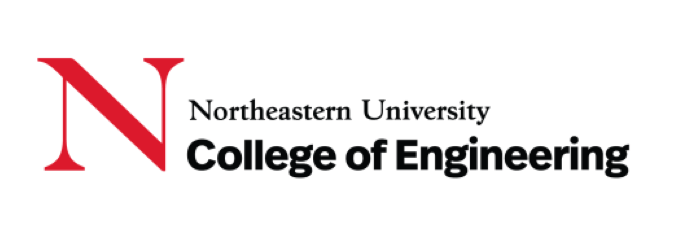It is said that the human lifespan could soon surpass 100 years due to technological advancements.
Engineering researchers and scientists are focused on finding cures and improving treatments for detrimental diseases such as cancer, Alzheimer’s and spinal cord injuries.
They’re also looking to produce environmental solutions that will help communities around the world, such as the distribution of cleaner drinking water and safer product designs.
Combined with Big Data and artificial intelligence, the possibilities these innovations bring are exponential.

Northeastern University offers a campus in the heart of Boston—a hub of biotech, high-tech, and academic institutions, as well as the most prestigious hospitals in the world. Photo by Northeastern University
In Boston, US, forward-thinking engineering researchers and scientists like these can be found at Northeastern University’s College of Engineering.
Bioengineering
According to Professor and Department Chair of Bioengineering at Northeastern University, Lee Makowski, “The interface of engineering and medicine as embodied in bioengineering will be one of the most exciting intellectual adventures of the 21st century.”
“Job opportunities are expected to expand dramatically with a focus on development of entirely new classes of products, instrumentation and implants with the expected impact on human health extraordinary.”
To advance their careers in this field, graduate students can pursue a Master of Science (MS) or Doctor of Philosophy (PhD) degree in Bioengineering.
These courses will allow them to study engineering in a biological context such as the human body, an ecosystem or a bioreactor.
In every case, the interface between engineered and biological systems places unique constraints on the design and implementation of devices, instruments or implants.
These constraints depend on the properties of the biological system involved and the functionality that is being created.
For example, cartilage repair remains a challenge due to its avascular and negatively charged matrix that limits its regenerative ability and hinders drug transport, which already suffers from short joint residence time.
Assistant professor of bioengineering at Northeastern University Ambika Bajpayee might just have the solution to this: Bio-electricity.
She recently received the NIH trailblazer award from the National Institute of Biomedical Imaging and Bioengineering to use her charge-based delivery platform to transport cell-derived extra-cellular vesicles into negatively charged cartilage for applications in drug delivery.
Chemical Engineering
Chemical engineering is another exciting area of study and research at Northeastern University.
Currently, Assistant Professor and CAREER award winner Sidi A. Bencherif is developing biomaterials that generate oxygen.

Chemical Engineering Assistant Professor Sidi A. Bencherif is developing biomaterials that generate oxygen to help fight cancer. Photo by Adam Glanzman/Northeastern University
These materials could help researchers understand how low oxygen environments affect the immune system and could potentially be used to supply oxygen to train immune cells to fight cancer.
The graduate programmes in chemical engineering at Northeastern University offer MS and PhD students the opportunity to work on such cutting-edge research in biomaterials.
Alternatively, they could focus their research efforts on biomedicine, energy, security and sustainability too.
Environmental engineering
The quality of the environment affects public health.
Assistant Professor of civil and environmental engineering Ameet Pinto knows just how true this is.
Recently awarded the Paul L Bush Award from the Water Research Foundation, Pinto researches microorganisms in the engineered water cycle, including drinking water and wastewater systems, and its interface with the environment and public health.

Assistant Professor of Civil and Environmental Engineering Ameet Pinto is developing a low-cost platform for real-time microbial community analyses. Photo by Ruby Wallau/Northeastern University
His research group works on understanding how microbial communities are influenced by treatment processes, how they in turn impact process performance and what can be done to manage these communities more reliably and more efficiently.
Students who are interested in a career that makes a difference can pursue an MS degree in Environmental Engineering.
This programme integrates the study of physical, chemical, and biological processes and fundamental principles for water and wastewater treatment and disposal, hazardous waste management and more.
There’s also a flexible PhD programme which can be adapted to any subject area in civil and environmental engineering.
Human factors engineering
Human factors engineering is a growing technical professional field that is considered essential to improving business performance, decision-making and market competitiveness.
To prepare students for industry demand, Northeastern University is offering a new MS in Human Factors degree which builds on students’ existing engineering, science or mathematics knowledge.
This multidisciplinary programme teaches students how to design safe products and systems, and encourages them to use their human factors skills in both individual and group projects.
Graduates will be qualified to work in industries such as transportation, healthcare, computer, robotics, manufacturing, consumer products, financial and other business settings.
Experience-powered Learning
Work experience, whether in industry or in research labs, is a powerful way to build skills for career advancement.
Knowing this, Northeastern University offers numerous ways for students to gain experience and build a professional network in their chosen field.
That’s how the university ranked first place for its internships/cooperative education by US News and World Report 2020.
Through its signature Co-op programme, graduate students can work up to eight months in the US (or globally) in their professional field as part of the academic curriculum.
Additionally, PhD students can participate in the university’s Experiential PhD programme which offers internships, fellowships, practicums and special initiatives.
MS Bioengineering graduate Vineel Kondiboyina chose Northeastern for these very reasons.
“I ended up choosing Northeastern University because the programme is well established, the location of Boston as a hub for the industry and the Co-op programme helps international students gain work experience in the US,” he says.
If you’re interested in engineering human health solutions alongside the College’s research network and want to study in Boston, click here to get started.
Follow Northeastern University on Facebook, Twitter, Instagram, YouTube, LinkedIn and Weibo
Liked this? Then you’ll love…
Engineer the future of human health with a PhD in biomedical engineering
Northeastern University: Igniting innovation with graduate engineering degrees











